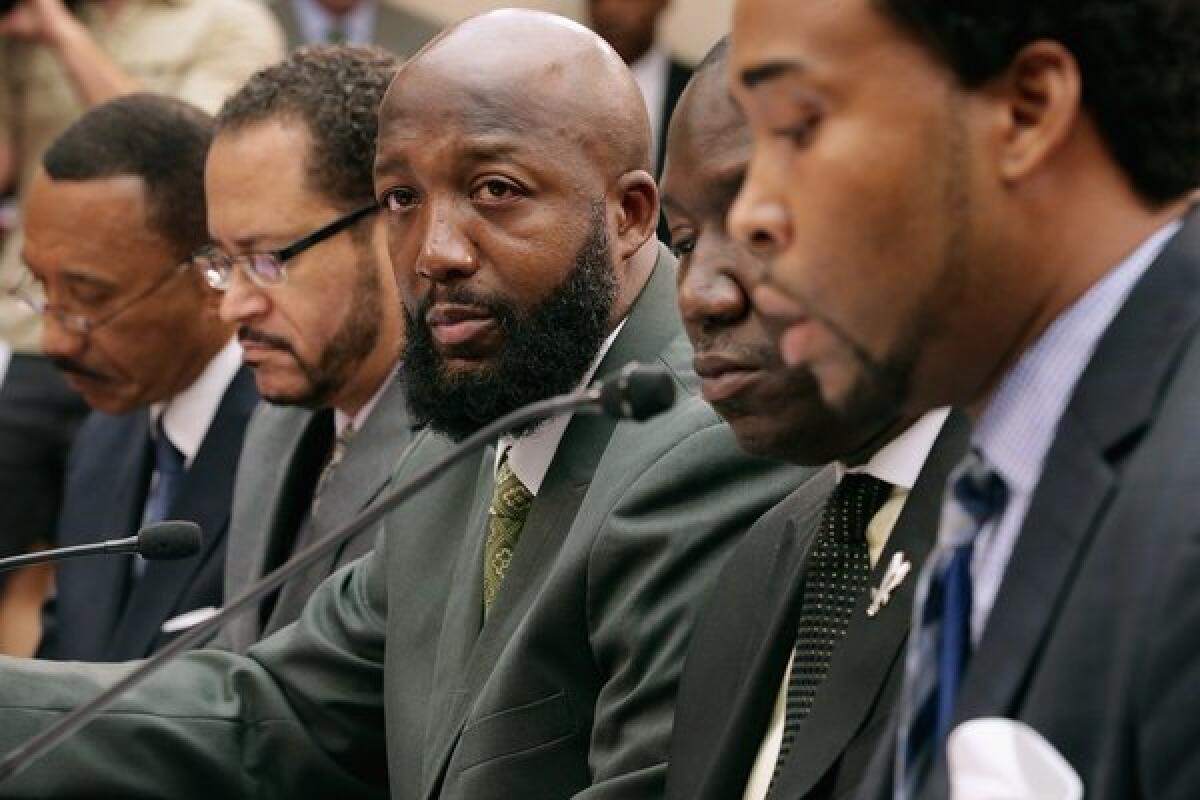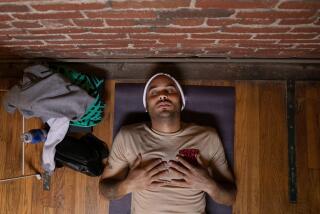Trayvon Martin’s father addresses congressional caucus on race

- Share via
WASHINGTON -- Tracy Martin, the father of slain Florida teenager Trayvon Martin, urged Congress on Wednesday to improve the educational and employment opportunities of African American boys and men, who are disproportionately imprisoned and unemployed.
“I always say that Trayvon was my hero,” said Martin. “He saved my life, and not to be there in his time of need is real troublesome.” When he was 9, Trayvon pulled his immobilized father from a fire that started in their kitchen and called 911.
Martin, who recently started an anti-gun-violence foundation with Trayvon’s mother, Sybrina Fulton, said President Obama’s impromptu remarks Friday, during which he shared his own experiences with racial stereotypes, “spark[ed] a conversation in every household.”
“That conversation is what can we do as parents, what can we do as men, what we can do as fathers, what we can do as mentors, to stop this from happening to your child,” Martin said.
PHOTOS: George Zimmerman verdict protests
Martin attended a meeting on the issues facing black boys and men organized by Democrat Eleanor Holmes Norton, the District of Columbia’s delegate to Congress, and Rep. Danny K. Davis (D-Ill.), co-chairs of the Congressional Caucus on Black Men and Boys.
Panelists spoke of the need to improve access to early childhood education and job training for all young people, and particularly black and Latino males.
Black males are incarcerated at a rate more than nine times that of white males ages 18 to 19, according to 2011 Bureau of Justice figures.
Only 52% of black males and 58% of Latino males graduate from high school in four years, compared with 78% of white non-Latino males, according to a 2012 report from the Schott Foundation for Public Education.
“To have his name slandered and demonized, I think as a father, I think it’s real important for my message to the world, we won’t let this verdict sum up who Trayvon was,” said Martin.
Rep. Maxine Waters (D-Los Angeles) said while the Department of Justice investigates whether to pursue George Zimmerman’s shooting of Trayvon Martin as a civil rights violation, more attention on issues affecting black men and boys would help create a “lasting legacy for Trayvon.”
A jury this month found Zimmerman not guilty of second-degree murder in the shooting death of Martin, 17.
“The issues are spread across the spectrum of the life of black males of America today, cloaked in stereotypes from their years as boys, as youth, and finally as men,” Waters said at the hearing. “We seek a society that does not define black men and boys, but allows African American males the opportunity to define themselves as individuals.”
Rep. Frederica Wilson (D-Fla.) started an after-school boys mentoring program in Miami-Dade County, where Martin had lived with his family.
“I am hoping today when we leave this room we leave with the commitment that these boys are not to be feared, they are to be loved, they are to be lifted up and made to feel proud,” Wilson said. “Trayvon’s murder has brought this to the forefront.”
ALSO:
Late heiress’ anti-immigration efforts live on
Justice Department to challenge Texas on voting rights
Senate passes student loan plan
Follow Politics Now on Twitter and Facebook
More to Read
Sign up for Essential California
The most important California stories and recommendations in your inbox every morning.
You may occasionally receive promotional content from the Los Angeles Times.













